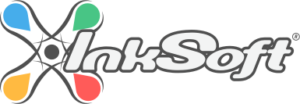Bottom Line Up Front: In this latest podcast, InkSoft co-founder JP Hunt breaks down his favorite principle for boosting employee satisfaction and business results — in one go. Get all the intel here!
Listen Now
Be sure to subscribe! Apple Podcast, Spotify, and Google Podcast, or using your favorite podcast catcher.
It can be difficult to keep each and every member of your team excited, motivated, and fulfilled — especially when remote work is still looming. So how do you ramp up productivity, alignment, and enthusiasm at the same time? How do you empower your people to think more creatively, experiment more passionately, and reach goals that they’re personally invested in?
Simple. You stop assigning tasks, and you start assigning results.
In our latest episode of the Sell More Merch podcast, InkSoft founder JP Hunt explains why assigning results leads to better ones — and yes, it’s really that black and white. Here’s why.
Think about things in your own shoes for a second: if you were instructed to take on a mundane task, what would you do? You’d probably focus on getting it done in the way it’s always gotten done, right? And as soon as you completed it, you’d check the box off — and totally forget it was in your orbit at all?
Now imagine you weren’t given a task, but a goal. Instead of being asked to create a Facebook ad or reach out to an old customer or research a new type of equipment, you’re asked to increase audience engagement. You’re asked to get stagnant customers excited again. You’re asked to boost operational efficiency for your team.
Immediately, the focus shifts from merely — and detachedly — checking off a task to putting your brain to work. You get curious. You start thinking. You’re put in a position of creativity; you’re given room to think out loud, outside of the box, and without restraint. Instead of being limited to “˜the way things are done’ or the (flawed) knowledge that “˜x leads to y,’ you’re empowered to leave your mark on the process — and subsequently, on your team.
See how that changes things? By giving your employees the resources, trust, and encouragement they need to take ownership of their work, you’re setting them — and your own business — up for success. In ways that might just surprise you.
In the podcast, JP pinpoints the four biggest benefits of assigning results over tasks — and they’re big enough that you’re going to want to pay attention. They are:
More Capable Employees.
The more you enable your team to brainstorm, hypothesize, and execute independently, the more confident — and capable — they’ll be doing it. People are quick learners by nature, and we’re all motivated by the same things: seeing the fruits of our labors come to bear. When your employees see that their ideas and experiments pay off, they’ll be hooked — and eager to try their hand at solving new problems. That means you’ll have a workforce that’s invested, diligent, and reliable. And a whole lot more capable too.
More Fulfilled Workforce.
When you delegate tasks, you’re removing the humanity of your staff from the picture — there’s no room for creativity or individual approach, and because of that, detachment is prevalent. But when you give them a target, a result that they should be working towards, they have the range they need to truly bring something unique to the table. They become involved — personally. They become excited, driven, and invested. And when each and every one of your team members feels that personal ownership over their work, then your team as a whole is functioning effectively. In a way that retains your employees over the long term — and keeps morale impressively high.
More Diverse Idea Bank.
When you empower your people to think innovatively, to build in new ways, and to reach higher, you’re not just creating a better management style for staff to thrive in — you’re actually generating better results. If you were to only dictate tasks, you wouldn’t be receiving any new ideas or approaches, and that means you wouldn’t be seeing any new results. But when you give each of your employees a way to test the waters, you’re creating an ocean of potential for each of their unique perspectives, unique backgrounds, and unique ideas to flourish. You have no idea where the creative spirit of your team will take you. And that’s the beauty.
More Results-Driven Actions.
By taking the focus off of pre-defined tasks and onto pre-defined outcomes, you’re fostering a major change in your workplace culture. How? You’re evolving the way your team approaches work — instead of following a to-do list, they’re making their own. Instead of blindly accepting instructions, they’re experimenting with new processes and analyzing the consequences. They’re hyper-aware of what the goals are and where they stand in relation, and they’re putting all of their own ingenuity towards closing that gap. And that’s happening at scale: your whole team, your whole culture, is doing it. Not only will that help your company stand out from a look-at-those-results perspective, but it’ll also get you turning heads from a what-a-place-to-work perspective too.
Four major benefits, one guiding principle: inspire your people to reach for results instead of task completion, and you’ll all be better off.
To check out the full podcast episode — and hear JP’s words of wisdom about the North Star principle — head here. But whether you give the full 7 minutes a listen or you just skim this recap, remember: your business will never reach its greatest potential if you’re operating in fear.
Fear that if you give your employees too much leeway, they’ll head in the wrong direction. Fear that if you stop assigning tasks, those tasks won’t get done.
It might take some learning — from your end and your people’s — but if you stay the course, you’ll be blown away. Because when the door is open for creativity, determination, and ingenuity? Magical things happen.
If you liked this topic, keep your eyes peeled for the next podcast — JP will be bringing you even more industry (and general business) insight, so you can grab the reins and hit the gas to your fullest potential.


